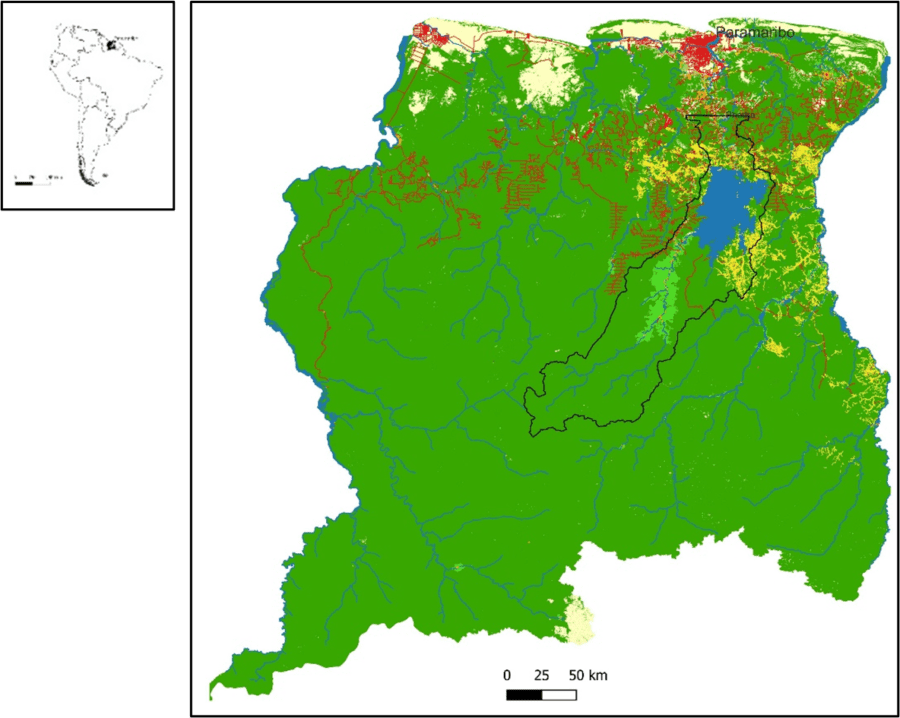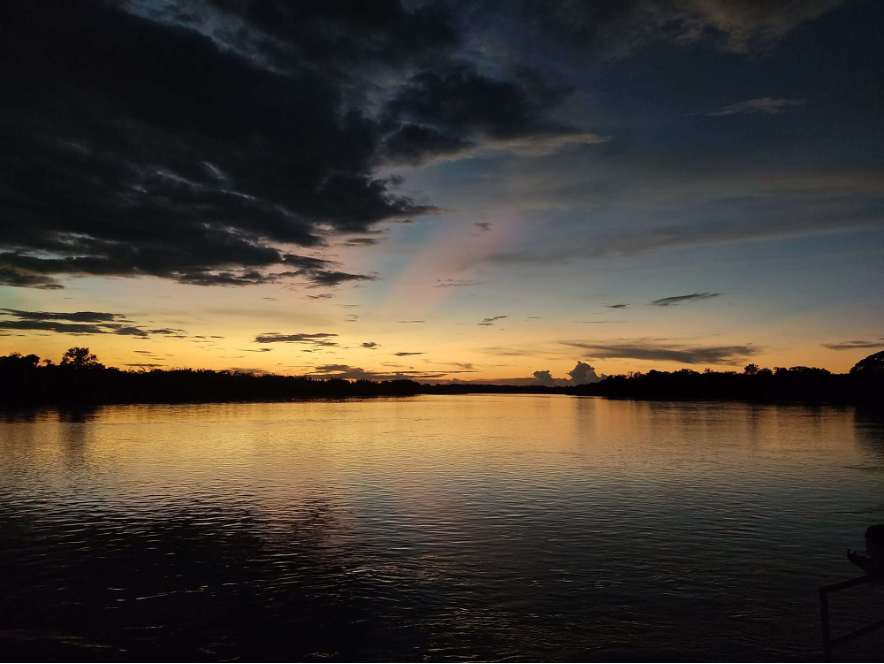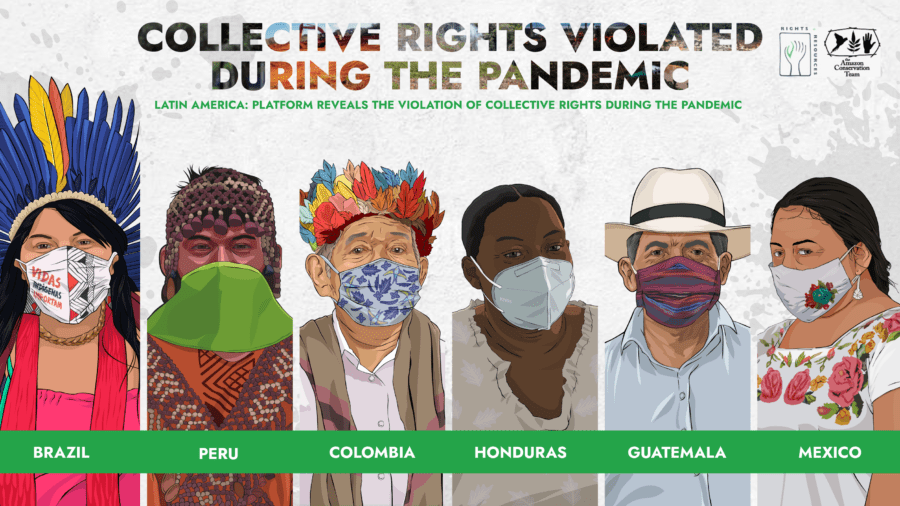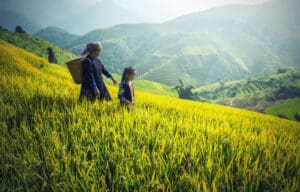RRI’s Strategic Response Mechanism is funding a new project in Suriname aiding the Saamaka people’s struggle to reclaim their territory in the Amazon rainforest. This is their story.
Who are the Saamaka?
The Saamaka are one of six tribal peoples in the country of Suriname. We are Afro-descendant Peoples—our rebel ancestors escaped from slavery and fled to Suriname’s forests, where they fought Dutch colonizers for nearly a century until 1762 when a peace treaty was signed recognizing the Saamaka’s freedom and territory.
By the time this treaty was signed, my people had already developed an autonomous community and culture rooted in the forest, language, spiritual vision, and an internal governance system based on our norms and traditions. This territory is partly delimited by the borders of the Suriname River watershed (Figure 1). It totals 1.4 million hectares of which more than a million are covered with Amazon rainforest.
As a tribe, we have a deep cultural and spiritual connection with the forest. Our existence and survival are inextricably linked to healthy forests, rivers and creeks.

The fight to secure our lands
Since the 1960s, peaceful existence has been an ongoing challenge for the Saamaka. Our human rights have been constantly violated through massive displacements, internal conflict, and illegal occupation of our ancestral land by logging and mining multi-nationals, enabled by government policies.
In the 1990s, we began a battle (Toko in the Saamaka language) against a Chinese logging multinational that had been invading our territory for more than a decade. In 2007, we celebrated a victory when the Inter-American Court of Human Rights (IACHR) ruled in our favor and mandated the Government of Suriname to stop forest destructive activities and legally recognize the ancestral ownership rights of the Saamaka people. This victory also changed international jurisprudence so that free, prior and informed consent (FPIC) would be required for major development projects in Indigenous and tribal lands, not only in Suriname but in Indigenous Peoples’ lands throughout the Americas.
However, despite the victorious Saamaka judgement, the Government of Suriname continues to push forward extractive developments in our lands, violating the court’s ruling. Seventeen years have passed, but the judgement has yet to be fully implemented. Worryingly, deforestation and forest degradation have actually increased since 2007 (see Figure 2). In 2022, we saw a dramatic increase in deforestation coinciding with increased logging operations authorized by the government. This is why the Saamaka Toko—the battle to secure and protect our lands and ancestral ownership rights—is far from over.

Mobilizing international support
The Surinamese Government recently permitted the construction of a large logging road and authorized extensive logging to take place in Saamaka territory, all without the consent of the Saamaka people and contrary to the orders of the IAHCR. This has led to the illegal exploitation of thousands of valuable logs on our land.
Moreover, the Palmeras road was carved deep into hundreds of hectares of Amazon rainforest which, for more than two centuries, the Saamaka had kept intact through their customary forest management system. The road facilitates access to poachers, loggers and miners, and in less than two years, has extended from a little over 4 km to 42.7 km (26.53 miles), causing devastating destruction to the forest and natural habitats. The deforested area directly adjacent to this road has ballooned from 13 hectares to an alarming 268 hectares.
In addition to the destruction of nature, the road also poses significant threats to the survival and livelihoods of the Saamaka people and to our sustainable use of the forest. But without the legal recognition of our ancestral ownership rights, my people are defenseless under national law.
This is why in March 2023, the Association of Saamaka Communities (VSG) began mobilizing international support for the legal recognition of our ancestral land rights. We are joined in this Toko by partners like the Rights and Resource Initiative (RRI), Global Forest Watch and International Land Coalition (ILC). Through an international petition, we are now calling for the support of world citizens to help us amplify our voices requesting the Government of Suriname stop violations of the Saamaka judgement.
The Saamaka are calling on the international community to stand with us and support our efforts to protect our land and more than 1 million hectares of the Amazonian rainforest.








